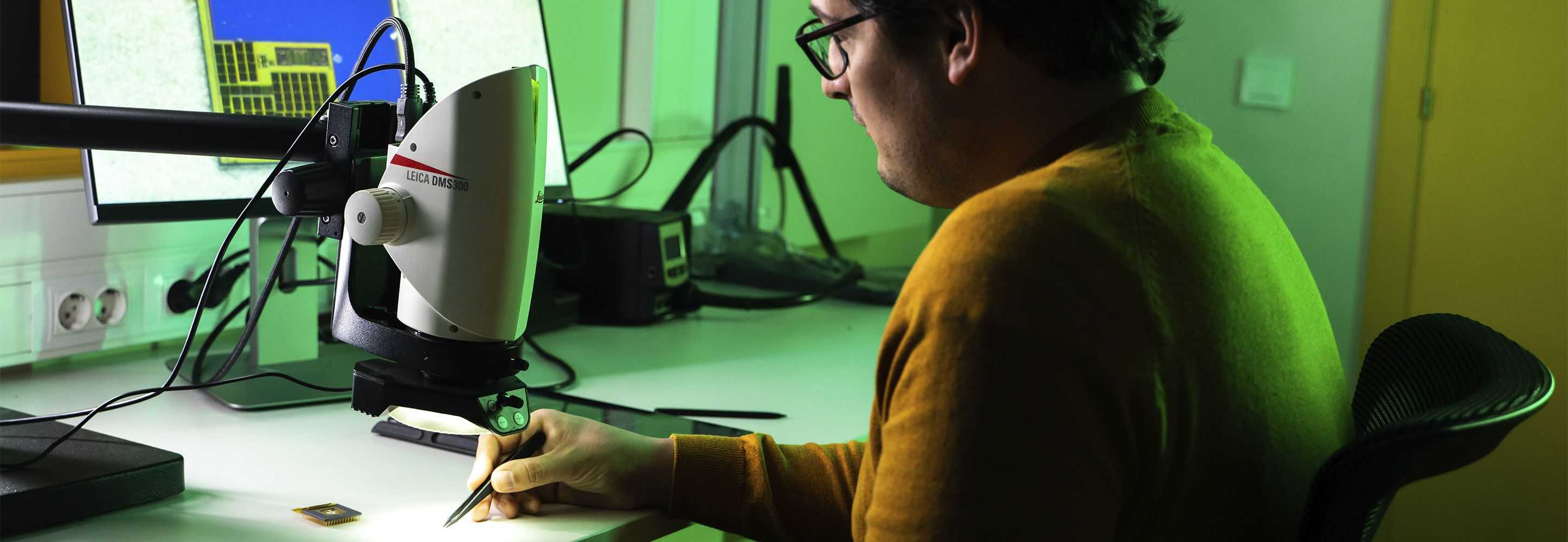
Óscar Pereira's thesis takes flight on the wings of the 'Icarus Prize'
The CiTIUS researcher has just won the Prize for the best PhD Thesis in the first edition of this award, promoted by the Area of Valorisation, Transfer and Entrepreneurship of the USC.
"Icarus dared to apply knowledge and ingenuity in order to reach beyond the island on which he was confined. In the same way, the ÍCARUS programme seeks to stimulate students to take their knowledge beyond the limits of its academic usefulness to imagine and explore other possibilities". With this premise, the Area of Valorisation, Transfer and Entrepreneurship of the University of Santiago (AVTE-USC) has just launched the ÍCARUS programme, a call for prizes to recognise academic work with a greater economic and social application. The initiative, which celebrates its first edition in 2023, aims to stimulate students of the university to reflect on the social and economic application of the knowledge contained in their academic work, whether it is a final degree (TFG), master's degree (TFM) or doctoral thesis.
It was precisely this last section that recognised the 'EcoHarvest' project, the practical application of Óscar Pereira Rial's PhD thesis, developed entirely at CITIUS. The work, entitled 'Ultra-low power CMOS circuit design for energy harvesting applications', was awarded the first of the two prizes for the best thesis of the year.
Throughout his thesis, the current postdoctoral researcher at CiTIUS focused his efforts on the design and manufacture of a type of integrated circuits (chips) capable of obtaining energy in a sustainable and continuous manner, taking advantage of available environmental energy sources, such as sunlight, mechanical vibrations, residual heat or electromagnetic waves. "The thesis focused on the study and design of ultra-low power consumption circuits," says Óscar, "in the range between tens of picowatts and a few nanowatts.
"The idea was to direct this research towards energy harvesting applications," he continues. "There is a fundamental advantage to the fact that these integrated circuits consume so little power, and that is that we can use the surplus energy collected to power other devices of interest that can do useful things. Among them, the researcher cites just two, such as "sensors that analyse our environment to provide us with temperature and humidity variables, or devices that can store and send information". "On the other hand," he adds, "having such a small power consumption in the circuit also allows us to reduce the size of the whole system.
Regarding the awarding of the prize, which he considers "satisfactory", Óscar says that it was Paula López, his thesis supervisor together with Professor Juan Manuel Carrillo Calleja (University of Badajoz), who encouraged him to submit his thesis to this call: "basically, the idea was to present a project based on the doctoral thesis showing the possible social and economic application of the knowledge generated", he explains.